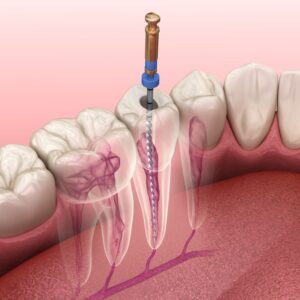
Root canal therapy can preserve a damaged tooth and help you to retain a complete smile. It is a wonderful treatment! However, even if you were pleasantly surprised by how easy your first root canal was, you might be reluctant to agree to getting the treatment a second time — especially if it is for the same tooth! Why might a root canal have to be redone, and what can you expect from the retreatment process? This blog post explains.
Reasons for Endodontic Retreatment
Root canal retreatment, which is also known as endodontic retreatment, might be necessary for one of the following reasons:
- Your tooth has complex anatomy. It can be difficult for a dentist to completely remove all the diseased and damaged tissue from within a tooth, especially if that tooth has a complex structure. If any infected tissue gets left behind, it could very well lead to the need for a second root canal in the future. This happens more frequently with molars than it does with front teeth. It also underscores the benefits of choosing a specialist for an initial root canal; they are more likely to perform successful treatment the first time around.
- The tooth has suffered additional damage. A tooth that undergoes root canal therapy should receive a crown after treatment. If crown placement is unnecessarily delayed, or the crown becomes damaged, it could allow bacteria to sneak into the tooth and cause a new infection.
The need for endodontic retreatment could arise soon after the initial procedure. However, it may also be necessary months or even years down the road.
What to Expect During Root Canal Retreatment
Endodontic retreatment can be more challenging than an initial root canal, so it is best to visit an endodontist for your procedure.
During your appointment, your mouth will be numb, and you may be sedated. Then, your endodontic team will access your tooth’s interior and remove the filling that was previously placed in it. They will also carefully remove damaged and infected tissues. Once that is done, they will re-fill the tooth with a special material known as gutta-percha. A crown should be placed afterward to protect the treated tooth.
You can expect some soreness after your appointment, but you should be back to feeling normal within a week or two.
Root canal retreatment can seem like an alarming prospect, but there is no reason to be afraid of it! Your endodontist will do all they can to make sure you have a successful procedure.
Meet the Practice
At Worcester Endodontics, our practice is home to five talented endodontists. Our team has many decades of combined experience, and we always strive to provide top-quality care. If you believe you need root canal retreatment, we would be pleased to consult with you. Contact our office at 508-755-3636.
